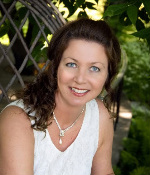Our 18th May webinar on How to Make your Author Blog Work for You was interesting and packed with great info. Our panel consisted of Laurel Marshfield (professional writer, ghostwriter, and developmental editor at Blue Horizon Communications), Teresa Morrow (owner Key Book Promotions, keybookpromotions.com) and Joel Friedlander (proprietor of Marin Bookworks, TheBookDesigner.com blog).
We faced a few technical difficulties due to which Teresa couldn’t join us and we were unable to record the webinar. For all those who missed the session and recording our panel has answered the questions in writing again.
1. Nicole Andrews finds it challenging to frequently update her blog. Do you have any suggestions for her.
Teresa Morrow:
My recommendation for those who are starting out with blogging is to start out to just once a week. This starts you out as a regular contributor and it gets you on a consistent schedule for you. And as you can, add another day during the week. One suggestion to help keep you updating your blog is to pick a topic or theme for the month and write various posts on the subject.
Joel Friedlander:
It’s important that blogging is not stressful, or you won’t keep doing it. The way around the stress is to set a schedule for publishing articles on your blog and staying with it. Even if it’s once a month, write one really great article and people will look forward to it. And if you use the scheduling power of your blogging software, you can get a week or two ahead, and lose all the stress of trying to make a deadline.
2. Do you have any suggestions for Christine Frost. Christine says finding time to write with a busy schedule; finding time to research good topics is a challenge.
Teresa Morrow:
The great thing about blogging is that a blog post isn’t about length as much as it is valuable and useful content. So, if you have something you wish to say from an experience that happened to you, blog about it. Again the important focus being your blog readers and making sure what you are writing is something the will get something from it. Your blog post can be just as powerful and valuable to your readers if it is 100 words or 1000 words.
One thing I find helpful with finding topics to write about for my blog is to Google alerts. You can set up to receive timely updates on specific keywords you want to what other people are talking about via blogs, podcasts, press releases around the keyword you want. Another thing I find is I read magazines and local publications. When I find something I think would make a good blog post, I tear it out and keep it in a folder. When I can’t think of something to write out, I reach for my folder and there are several to choose from.
Joel Friedlander:
When you start a blog, you need to find the other bloggers in your niche and get to know them and their work. They will become an important part of growing your blog and finding traffic for your posts. Popular blogs and active discussion forums are places where people interested in your subject hang out. You have to hang out there, too, and your contributions in these places will start little streams of traffic to your blog.
3. How do you find people who have the same aspirations or interests as you? Also how do you support each other in becoming published writers? [Janet Leigh ]
Teresa Morrow:
Oh, I truly enjoy this question because this is the FUN of social media and internet. In this your search boxes either in your browsers or within social media such as Twitter, Linked In or Facebook are the gems to help you in this arena. For instance, if you wish to find women fiction writers, then go to google.com OR twitter.com and put this keyword phrase in the search box. Check out the list of websites, blogs and/or people brought up on your list. I recommend you click on which ones you are drawn to and do some research to look on their site. If this person seems like a good fit, then make it a point to connect with this person or group. The beauty of this is you can do this for 10 min, 30 min or an hour if you want.
Joel Friedlander:
Although Blogger and WordPress.com offer free and easy blogs that you can get started on in a few minutes, consider getting a hosting account instead and installing the WordPress software. This is usually a “1-button” installation that takes about a minute. You will then own your blog and it will become an asset.
4. Christine Frost is curious to know about virtual book tours.
Teresa Morrow:
Virtual book tours are similar to regular book tours except instead of going from town to town, city to city, state to state, you get to leisurely sit at your home and “travel” from blog to blog or internet radio interview to internet radio interview or combination and people have the opportunity to get to know you better. The main purpose of your virtual book tour is about having more people know about the subject matter of your book. It provides the author to increase the exposure of your expertise and add to your author platform. You can have your virtual book tour be an extension of a traditional book tour or even Amazon campaign day. This is the beauty of a virtual book tour, it gives the author the control to spread the message of your book with a wider audience as the internet never sleeps.
Joel Friedlander:
It’s really important for bloggers to understand how many different types of reader engagement there are. From coming across a comment of yours on someone else’s blog (very low engagement) all the way up the scale to opting into your mail list (very high engagement). There are many levels and each comes with increased trust and authority. That’s why it’s important for bloggers to offer a variety of options to readers to match their level of engagement. Commenting is a pretty high level of engagement, and it makes sense to encourage comments when possible.
5. Christine Frost would also like to know about choosing a good blogging platform (and pros and cons of possibly switching platforms).
Teresa Morrow:
As far as blogging platforms go, my favorite is WordPress and it is the one I use. As far as switching platforms, I believe that most (maybe not all) will allow you to switch the platforms and bring over most of your content. However, I don’t believe you can convert over the comments and the formatting may be off. My suggestion would be to check out each FAQ and Help section of the one you have and the one you are thinking about switching to so you can make a solid decision.
Joel Friedlander:
Not by blogging about your book. The key is listening. If you go to those blogs and forums I talked about in a previous question and just read through the questions people are asking, you won’t find any people asking about your book, will you? But think about all the different ways to write about the subject of your book: what’s happening in your field right now; interviews with prominent people in your field; new technology developments or tools that affect your work; really, the list is endless. And all the writing and communicating you do on these topics will lead people to your publications.
Read Joel’s post on this webinar – Author Blogging: Questions and Answers via @BookBuzzr.
What are your thoughts? Would you like to add to the answers? Have questions about blogs and blogging? Leave your questions and suggestions in the comments for our panel.


